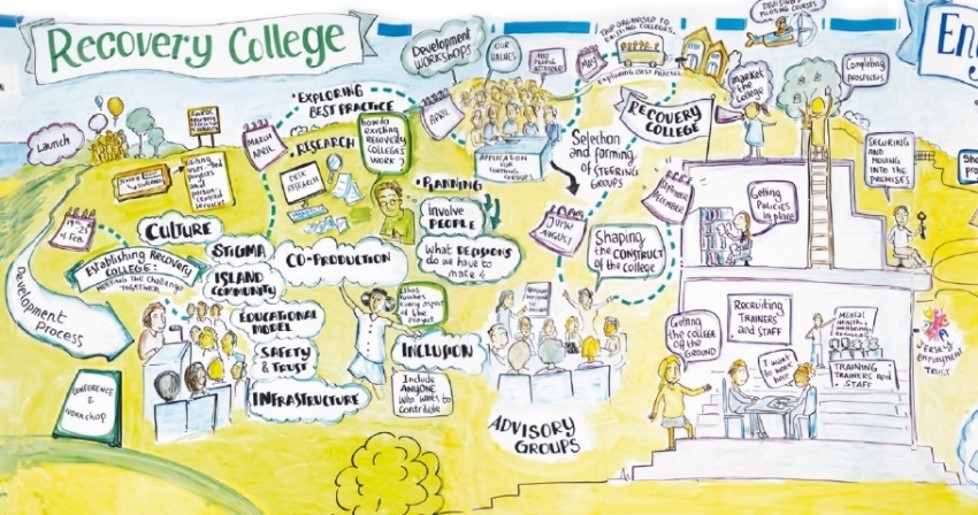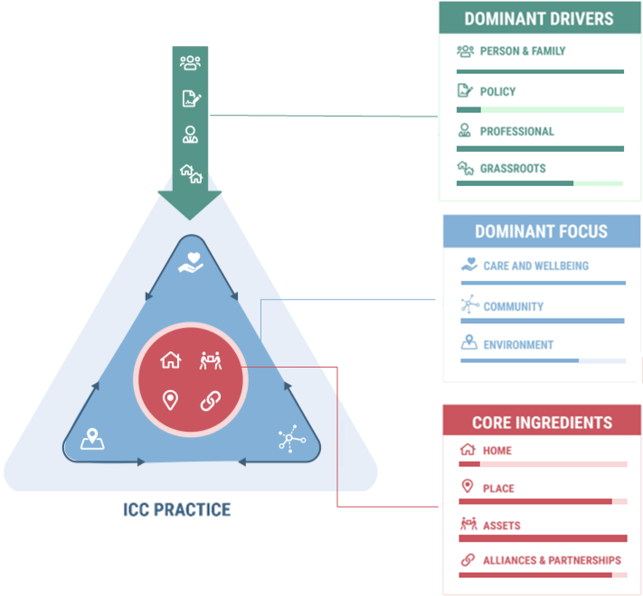The crisis clarified and validated the position of COFOR and the direction it should take. Individual student follow-up was discarded as an option because the entire team does not have peer-support skills. Instead, COFOR undertook the role of training center. Students needing support were directed to peer-aid platforms or associations providing peer support, such as the Lacdam association in Marseille. COFOR ensured a presence via social networks.
COFOR decided to set up distance training modules, These raised ethical questions: how to offer distance training while guaranteeing unconditional access? how not to exclude students without access to digital? The solution was to buy a dozen computers to equip students who did not have them. In June, the hybrid distance training modules “towards peer_aid professions” and “recovery” were launched. The Monday evening group meetings were also resumed with the hybrid method during this period. The meetings were greatly appreciated, both for their content and for the opportunity to renew social ties between students. The last term continued until the end of July (a setback from the end of the school year), and the students validated their course and received their financial reward. COFOR did not lose any students along the way. The students who could not attend modules during this period were postponed until September.
The IRTS center, host of the courses, reopened its doors at the beginning of September and was once again able to offer classrooms to COFOR. The five modules resume gradually, exclusively at school. This gradual reopening was a month behind the usual process. Early September, 60 students were on the waiting list to be contacted, to integrate these modules (a lot more than usual !).
The collective meetings on Monday plan to be resumed face-to-face. COFOR does not wish to continue the modules remotely in the long term unless they can be mixed with other configurations. Although virtual working can certainly have positive aspects such as avoiding the displacement of those with phobias and inclusion of those hospitalized, but it also raises questions of confidentiality and/or security problems.
COFOR is based on a participatory methodology that is constantly changing and adapting. Containment and the crisis required an even more intense adaptation.
In addition, COFOR has been an established project for 3 years now. The known strengths, the place in the community , and the accepted role of COFOR, aided in choosing and validating COFOR’s position and actions during the crisis.
The bonds of solidarity are already an integral part of the functioning of COFOR. The crisis nonetheless reinforced this solidarity between students. For example, a student spontaneously proposed the creation of a musical group which still endures and which has extended to patients of a medical-psychological center.
To allow these links to be integrated in a more sustainable way within healthcare practices, COFOR has created a new training module which is offered to students who are people affected by psychiatric disorders and to medical students (3rd year of psychiatry internship). This module makes it possible to take into account the words/voice of experts by experience and to change how future psychiatrists view their patients. Another joint module is designed for people with psychiatric disorders and nursing students.


